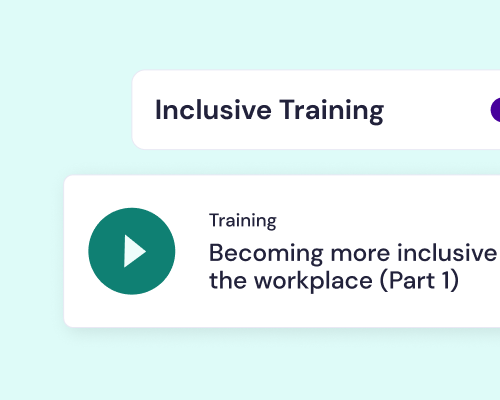Introducing Boost
Everyone Can Use a Boost Sometimes
Inclusively’s training and consulting offerings help companies adopt a universal approach to accommodations that supports every employee while also maintaining compliance.
How can you reliably measure success using metrics that matter?
Measuring your progress regarding accommodations and employee engagement is critical, but how can you do that if you haven’t assessed your current state? Boost helps you clearly evaluate where you’re starting from in order to monitor improvement over time.
Success Enablers are accommodations, modifications and opportunities for workplace personalization. They help all employees reach their potential and provide access for employees with apparent and non-apparent disabilities.
Turn Insights Into Actions.
Boost offers:

Trainings
Leverage our fully accessible, live or digital training solutions to educate and inform your team on improving the accommodations process and creating an inclusive workplace experience for all.
Consulting
Partner with us to move to a more universal approach to accommodations by creating a Success Enablement Framework that is scalable and accessible. In addition to reviewing your current accommodations framework, we can target specific processes and goals, such as inclusive hiring, ERG development, feedback tools and data development.
Surveys
Utilize our proprietary Employee Experience Assessment Survey (EEAS) to comprehensively capture employee sentiment and experience regarding accommodations and disability inclusion. This data-driven approach drives actionable insights to ensure all employees are set up for success.


